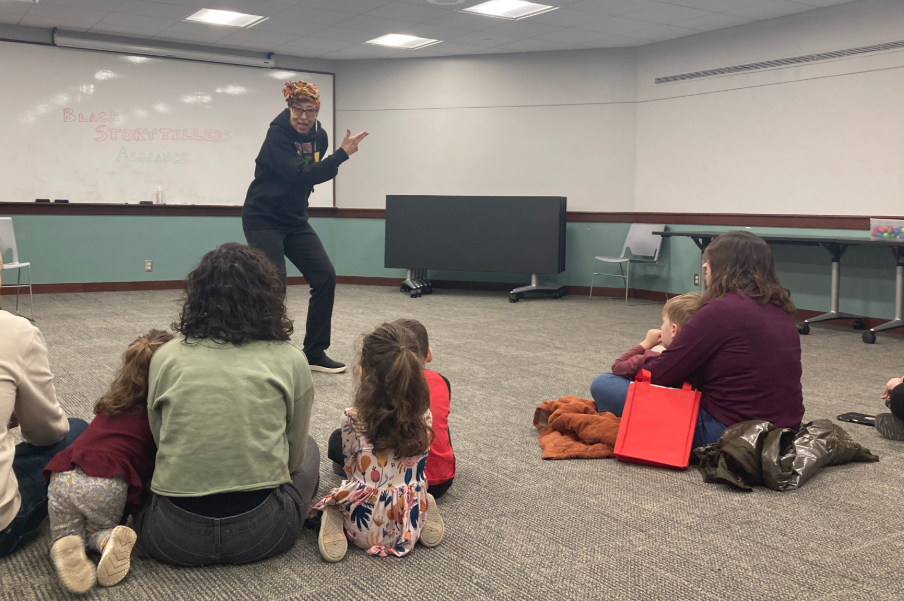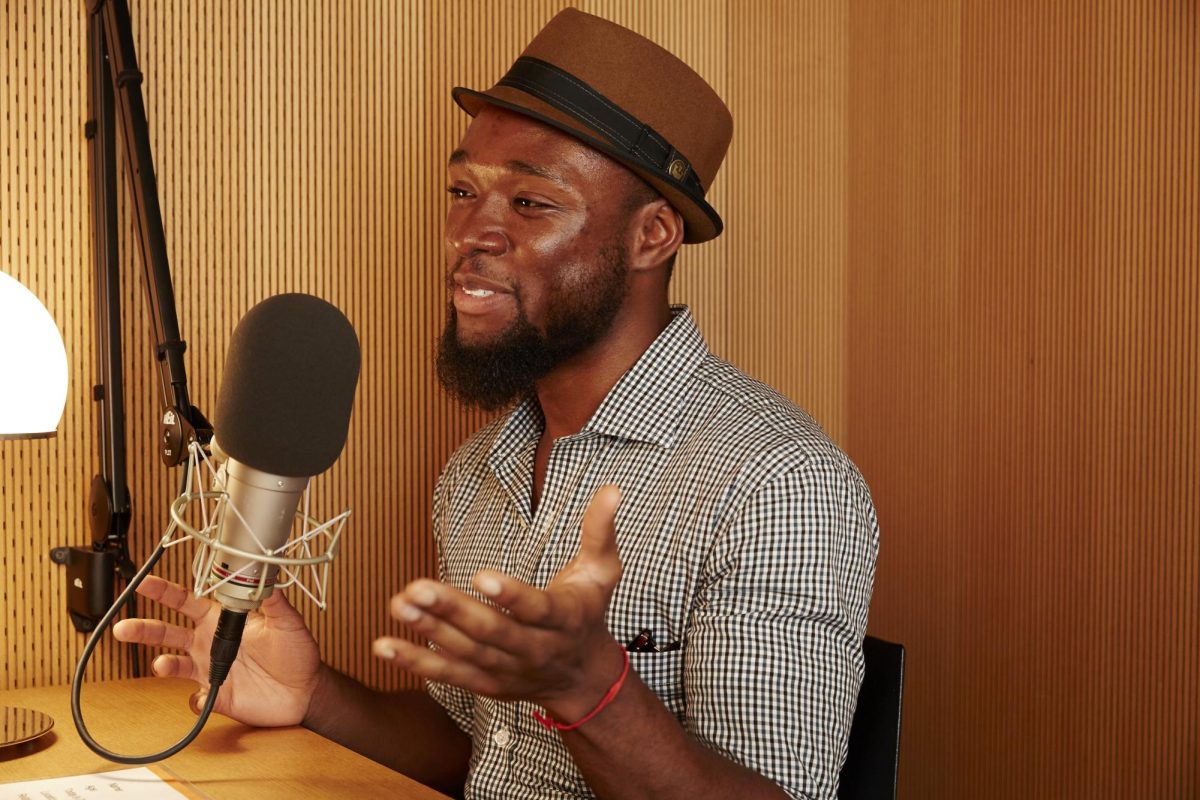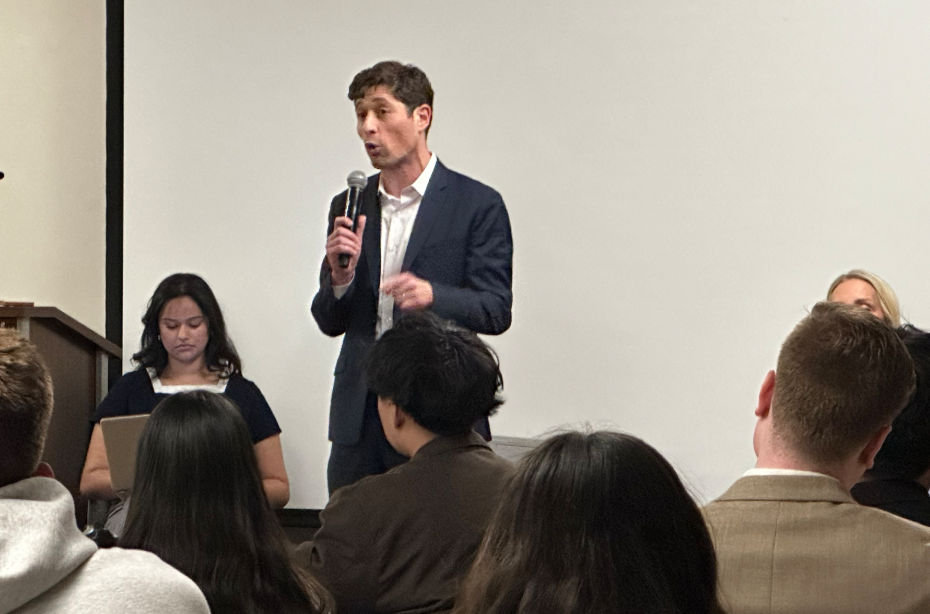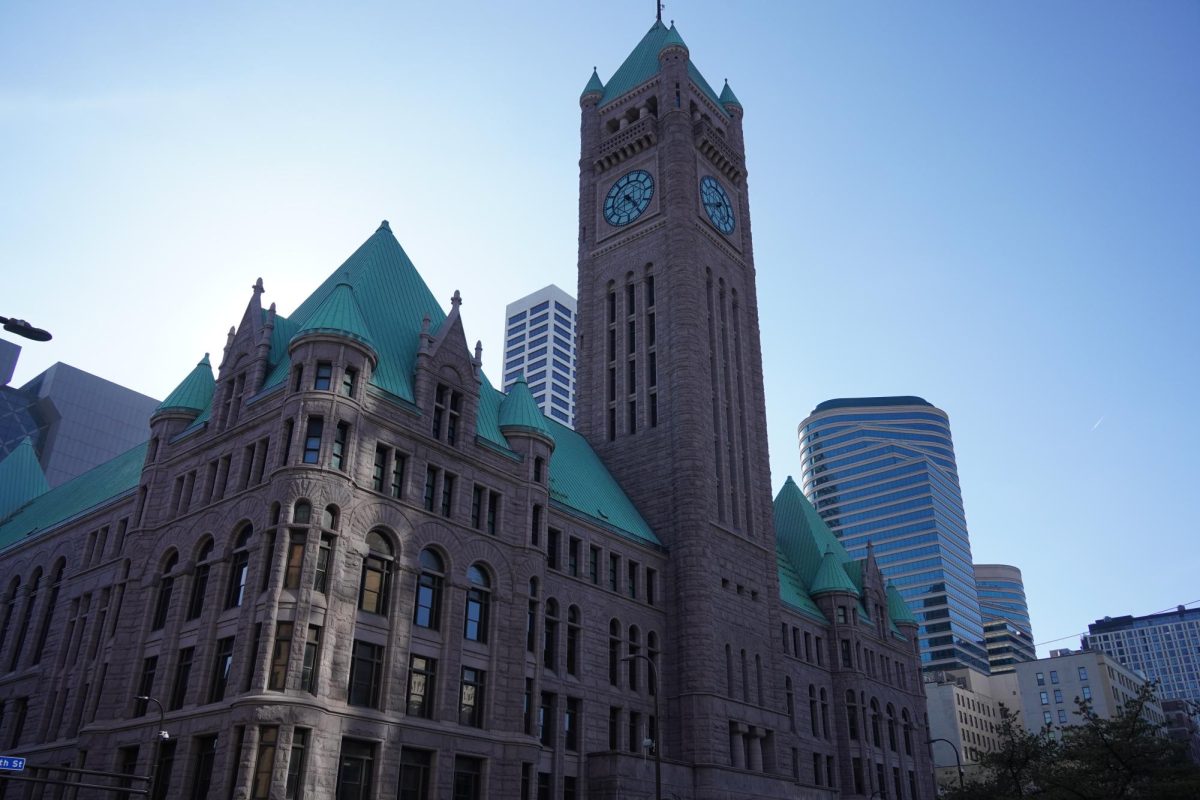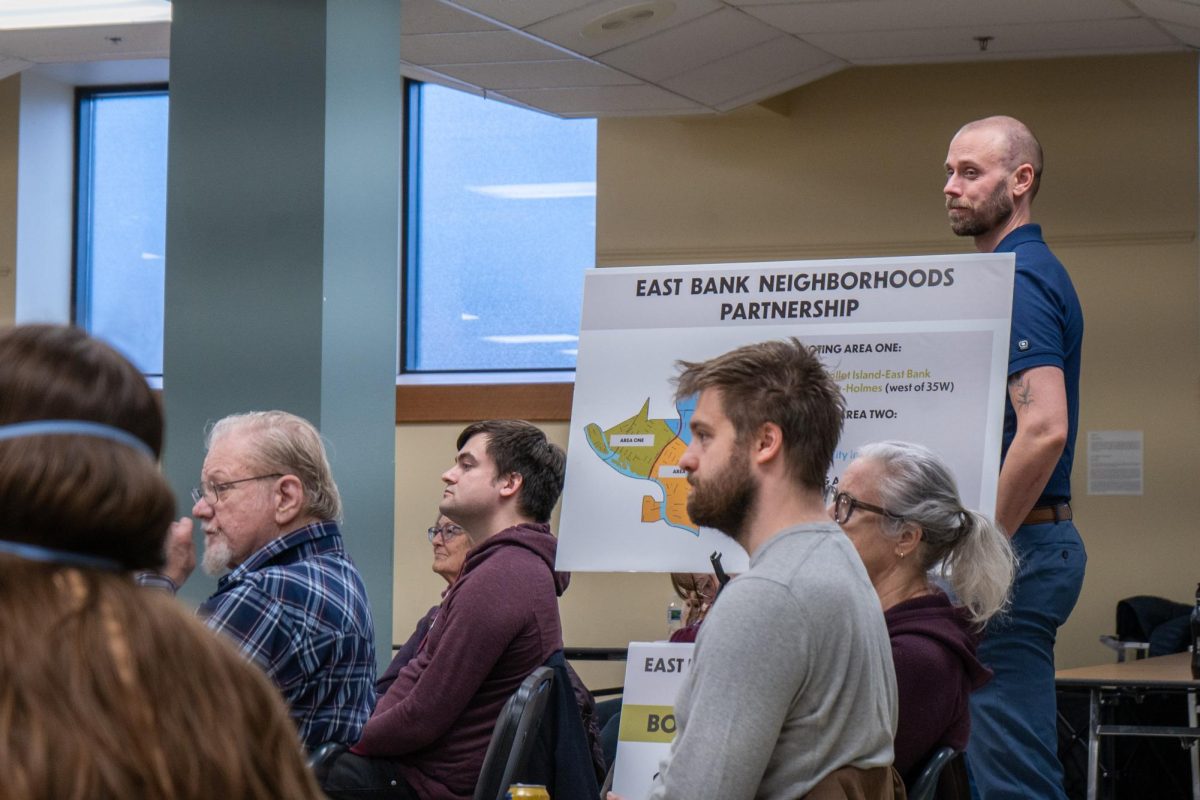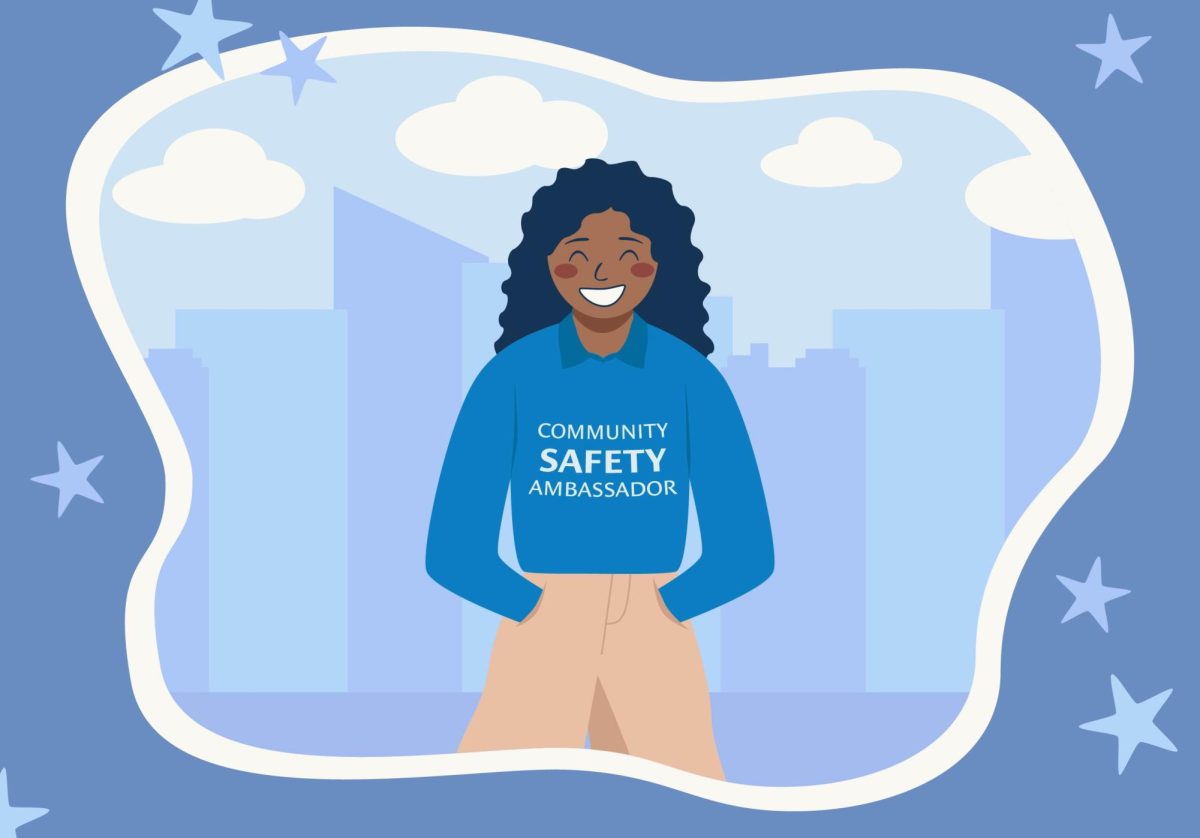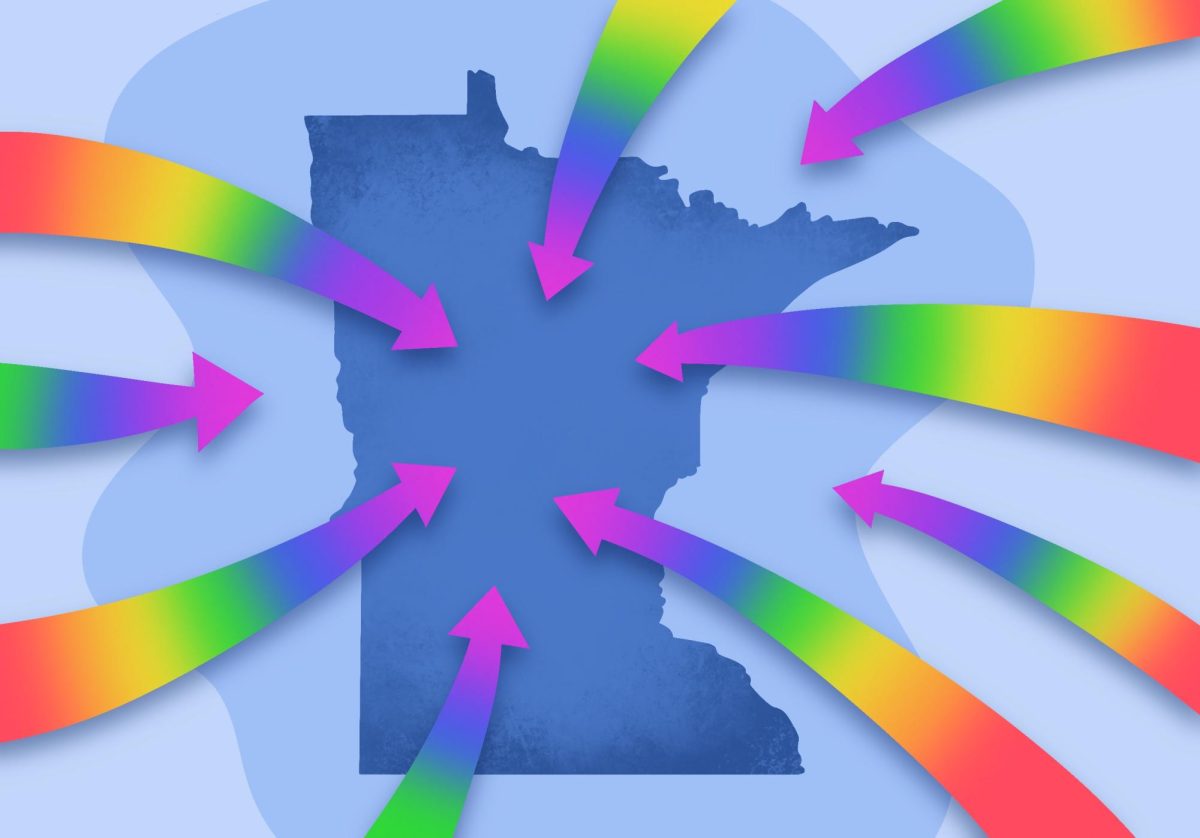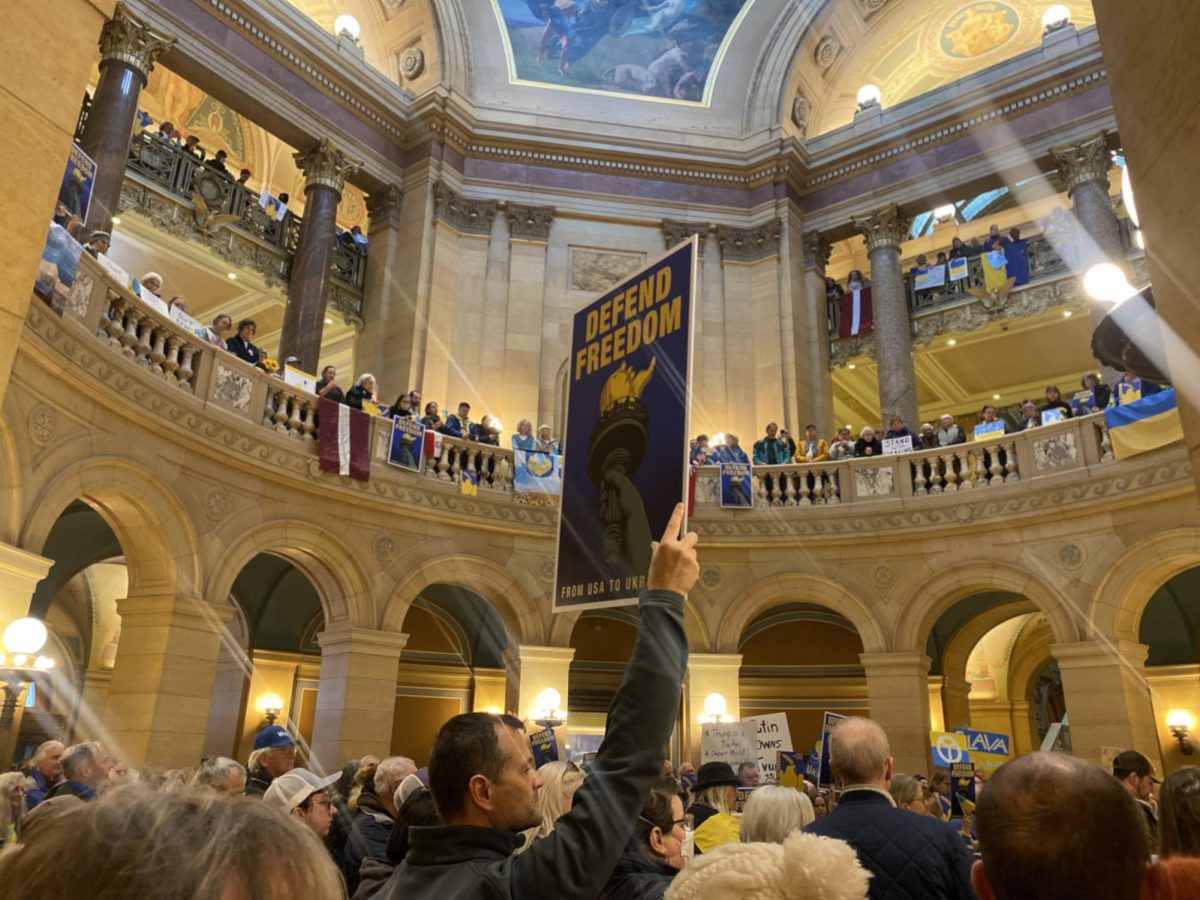In the basement of Washburn Library, Kristie Lazenberry raised her voice in triumph to tell the story of a magical tailor as about a dozen Minneapolis residents and kids gathered around to hear stories from Africa.
Washburn Library hosted the Stories for Black History Month event on Saturday with the Black Storytellers Alliance, a non-profit group that trains people to tell legends and mythology from the African diaspora.
While the Stories for Black History Month event has been ongoing for decades, this is the first in-person one since COVID-19, According to Washburn Library librarian Ann Zettervall.
Zettervall said telling these stories helps the library feel like a more inclusive space for people in Minneapolis.
“Libraries historically have had a place in the systemic repression of people outside of the majority group, and one of the most important aspects that I see for libraries now is making sure that it’s a space that everyone feels welcome in,” Zettervall said. “Part of that is having programs that highlight communities that are historically ignored or underrepresented to make those groups feel more welcome here.”
Lazenberry, who is also a director of Equity and Strategy at the St. Paul Area Chamber of Commerce, said storytelling was something she was always born with.
“I have always been into arts kinds of things, whether it’s dance or acting, singing, those various things,” Lazenberry said. “So this, to me, was kind of an extension of that, because I also like to do things with children as well.”
For each story, Lazenberry wants to add her voice. At the event, she uses her booming voice to tell the story of a character tricking a tiger into becoming a riding horse.
Lazenberry was introduced to the Black Storytellers Alliance through a friend. After she joined the program, she trained every Saturday morning for twelve weeks in telling stories from Africa.
According to University of Minnesota African American & African Studies professor Bula Wayessa, learning stories from the diaspora can help people unlearn negative biases about Africa.
“African legends by Africans have been produced and reproduced by Africans, and unlike most sources that perpetuate negative perceptions about the continent and its people, the legends empower and motivate kids,” Wayessa said.
For Lazenberry, telling these stories helps give young Black children a better understanding of the African oral storytelling history.
“The most important thing to me for children especially is to grow up knowing your history and knowing where your ancestors came from, and stories that get passed down from generation to generation always have some little something in there that keeps you connected to your ancestry, but also teaches you something,” Lazenberry said.
Parents Keenan Marshall and Katie Byom said their 16-month-old daughter Addy Marshall-Byom was hyper-focused on Lazenberry’s storytelling.
“The physical nature of the way that she was telling stories really grabbed Addy’s attention and really kept her focused for the most part, as much as you can with a 16-month-old,” Marshall said. “That was pretty cool to see.”


